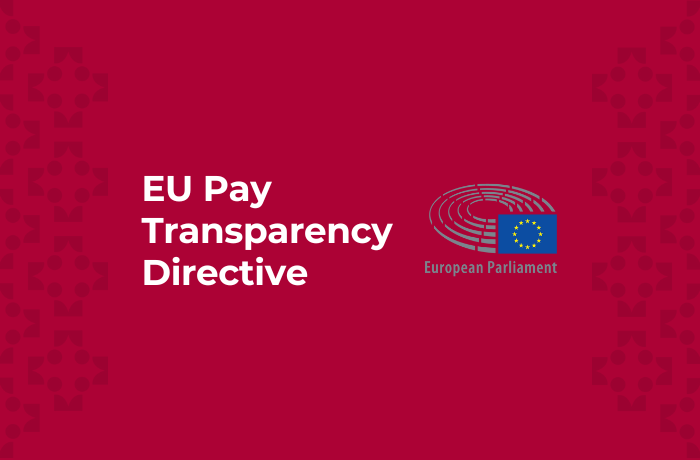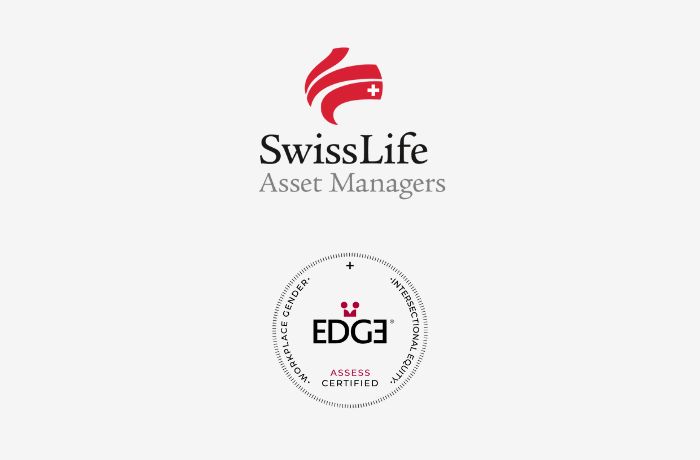Reflecting the ever-evolving landscape of DE&I legislative contexts worldwide, we have updated EquiNations, our overview of the DE&I legislative contexts across the 20 countries with the highest number of currently EDGE Certified organizations. Building upon our previous research, we have conducted a comprehensive analysis to identify any recent shifts or advancements in DE&I legislation across the 20 countries.
EquiNations
Explore DE&I regulations in 20 countries
Select a country from the dropdown menu to highlight our findings and read a summary of the standout metrics.
You can view the legend for each category by hovering or touching over a circle.

Our analysis covers the 20 countries with the highest number of current EDGE Certifications
For a detailed explanation of the DE&I indicators chosen in the EquiNations legislative overview, please refer to our original EquiNations Publication.
Key Updates and Upcoming Regulatory changes
Parental Leave
In Australia, there are more upcoming changes to parental leave provisions. Starting from July 1, 2024, the new scheme will provide four weeks of leave offered specifically to mothers or primary caregivers, four weeks of leave offered specifically to fathers or partners, and up to 14 weeks of parental leave (which can be taken by either parent). The amount of parental leave will increase by two weeks every year until 2026, and the rate of pay is equivalent to the national minimum wage. The aim of these adjustments is to promote greater involvement of fathers and non-primary parents in the early months of their child’s life[1].
While Australia is currently the only EquiNations country that has implemented an expansion of its paid parental leave scheme, there is movement in other countries. The Government of Spain has pledged to increase parental leave from 16 weeks to 20 weeks for each parent starting in 2024[2]. In March, Thailand‘s parliament voted in favor of two draft bills that would increase maternity leave from 98 to 180 days and introduce paternity leave[3]. In France, the President has also announced plans for a more generous, gender-equal system of parental leave[4].
Same Sex Marriage
In October 2023, India‘s Supreme Court declined to legalize same sex marriage. Despite the absence of marriage equality for LGBTQ+ individuals, the court has embraced the government’s proposal to establish a committee to explore extending additional legal rights and privileges to same-sex couples[5]. In Thailand, certain bills have been presented in Parliament that, if approved, would legalize same-sex marriage in the country[6].
Non-Binary Gender Identity Recognition
In August 2023, Germany’s Cabinet passed the bill for a “self-determination” law which is now being discussed at parliamentary level. Self-determination recognizes that people determine their own gender. The bill would enable them to change official records accordingly, giving transgender, intersex and non-binary people more control over their identity[7].
Sensitive Personal Data Collection
In India, the Digital Data Protection Act, 2023, was passed by the Indian Parliament, marking a significant milestone in India’s data protection journey. While the effective date is pending, it’s anticipated to bring India’s standards in line with EU’s GDPR and other global counterparts[8].
In Vietnam, Decree No. 13/2023/ND-CP on the Protection of Personal Data (PDPD) became effective on July 1, 2023. The PDPD represents the Vietnamese Government’s first move to consolidate regulations on personal data, aimed at meeting data protection requirements in the context of information globalization. Ethnicity is categorized under “sensitive personal data” which means that standards for the processing of sensitive personal data are stringent but possible[9].
Effective June 1st, 2023, China implemented the Personal Information Protection Law (PIPL). Under PIPL, significant changes were introduced regarding the legal exportation of personal information from China. On September 28, 2023, China’s Cyberspace Administration published draft regulations called “Provisions on Regulating and Promoting Cross-border Data Flow.” If these regulations are put into effect in 2024, companies won’t need to undergo data security checks, create standard contracts, or get certification to send employee data abroad for HR purposes[10].
In October 2024, Indonesia‘s new Personal Data Protection Bill takes effect, superseding a collection of fragmented data governance regulations. We will continue to monitor for updates as this legislation unfolds[11].
Gender Pay Gap Transparency
One of the DE&I indicators that has received considerable attention in recent months is “pay transparency”, being driven by regulatory changes across Canada, Australia, Brazil, and the EU. Still just 11 of the top 20 EDGE certifying nations (UK, Switzerland, France, Germany, Canada, Italy, Spain, Australia, Austria, Belgium, and Brazil) have mandated gender pay gap reporting requirements for employers.
It is, however, widely recognized that mere reporting often falls short of addressing the issue comprehensively[12]. While research indicates that enhanced disclosure of pay disparities between genders can contribute to narrowing the gender pay gap, these findings reveal that the process through which this reduction happens is intricate and varies depending on the country[13]. Indeed, we are witnessing a diverse array of mechanisms being implemented across different countries to address this issue.
Some governments have introduced equal pay audits to enhance transparency and accountability beyond basic reporting. Four EquiNations counties, Switzerland, France, Canada, and Spain, have equal pay audit requirements. Countries with pay auditing systems typically implement rigorous monitoring methods, often involving certified auditors, mandate corrective action and/or impose penalties for not closing gender pay gaps.
Three other counties, Canada, Australia, and Brazil have recently adopted a public disclosure policy as the accountability mechanism to reduce the gender pay gap.
The Canadian government has launched Equi’Vision, a tool offering readily comparable data on representation rates and pay gaps of federally regulated private-sector employers with 100 or more employees[14]. It covers four designated groups under the Employment Equity Act women; Indigenous peoples; persons with disabilities; members of visible minorities. Canada leads as the first country to publicly release such extensive data.
In February, in Australia, the Workplace Gender Equality Agency (WGEA) disclosed, for the first time, the gender pay gap at all private sector employers with over 100 employees, following new legislation enacted in 2023[15],[16]. Although the figures published in February may not have surprised most reporting organizations, as WGEA has been publishing national and industry-based averages for the past decade or so, the absence of accountability to tackle these disparities in previous years led to legislative changes allowing for public disclosure. This new system is a step forward towards greater transparency of progress towards workplace gender equality in Australia.
The public disclosure of company pay structures and pay gaps has potential to be a powerful tool for closing gender wage gaps[17]. However, this mechanism does put the onus on workers to fight against individual or systemic pay inequities. It also underscores the importance of stakeholders, including the media, financial analysts, and academics, in leveraging this data release to raise awareness about gender pay disparities in the market.
Advantages of EDGE Certification in Promoting Pay Equity
EDGE Certification offers valuable support to organizations in effectively managing pay equity within their organizations, regardless of whether they operate in countries with mandated pay gap reporting or not.
In jurisdictions without legislation, the EDGE Standard and Certification system provides clear guidance on best practices for pay gap analysis, facilitating the development of robust action plans that enhance accountability and drive progress.
In jurisdictions where pay gap reporting and auditing is compulsory, EDGE Certification serves as a useful tool for facilitating compliance with national requirements while elevating pay gap management and reporting beyond mere regulatory obligations.
Embracing EDGE Certification not only shows an organization’s dedication to fostering pay equity in the workplace but also demonstrates its commitment to positive change and cultivating an inclusive organizational culture. Audited by an approved independent third-party certification body, EDGE Certification supports the integrity and credibility of equal pay data and information, providing organizations with a powerful means to communicate their commitment to and progress in DE&I.
[1] https://www.servicesaustralia.gov.au/changes-if-you-get-family-payments?context=64479
[2] https://leglobal.law/2024/01/19/looking-ahead-2024-spain/?
[3] https://www.nationthailand.com/thailand/policies/40036214
[4] https://www.lemonde.fr/en/france/article/2024/01/17/demographic-rearmament-macron-plans-to-reform-parental-leave-and-fight-infertility_6440096_7.html
[5] https://www.amnesty.org/en/latest/news/2023/10/india-failure-to-legalise-same-sex-marriage-a-setback-for-human-rights/
[6] https://www.amnesty.or.th/en/latest/news/1203/
[7]https://www.bmj.de/DE/themen/gesellschaft_familie/queeres_leben/selbstbestimmung/selbstbestimmung_node.html
[8] https://www.dataguidance.com/jurisdiction/india
[9] https://www.dataguidance.com/notes/vietnam-data-protection-overview
[10] https://leglobal.law/2024/01/19/looking-ahead-2024-china/
[11] https://securiti.ai/indonesia-personal-data-protection-law/ https:/digitalpolicyalert.org/digest/dpa-digital-digest-indonesia
[12] https://www.oecd-ilibrary.org/sites/7db04433-en/index.html?itemId=/content/component/7db04433-en#section-d1e30385-d1ee018e3b
[13] https://www.economics.ku.dk/staff/vip/?pure=en%2Fpublications%2Fgender-wage-transparency-and-the-gender-pay-gap(7a54bc94-a6f3-4854-9b01-aece43f4637b).html
[14] https://equivision.services.gc.ca/
[15] https://www.wgea.gov.au/about/our-legislation
[16] https://www.wgea.gov.au/data-statistics/data-explorer
[17] https://www.oecd.org/gender/Gender-pay-gap-reporting-and-equal-pay-audits-Policy-Brief.pdf
This analysis is based on research undertaken by EDGE Certified Foundation in March 2024.
Are you aware of further regulatory changes or wish to issue a correction? Please email us at info@edge-cert.org.



